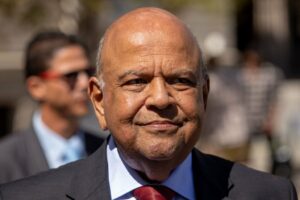The Social Policy Initiative (SPI) has recently put forward a proposal for the widespread adoption of a Universal Basic Income (UBI) in South Africa, suggesting a phased introduction over three years. The initial monthly amount is set at R798, escalating to R1,804 by the third year. This initiative is aimed at fostering economic growth by providing a financial base for all citizens.
In their strategic paper, “The Economics of Implementing UBI in South Africa”, unveiled last week, SPI champions the UBI as an economic catalyst rather than merely a tool for poverty alleviation. The organization presents compelling data, indicating that a monthly UBI of R1,500 per individual could potentially finance itself up to 96%.
The estimated total cost for implementing UBI for both adults and children over three years is projected at R862.9 billion, broken down into R557.7 billion for adults and R305.2 billion for children. This figure includes a means-tested child support grant of R505 per month during the fiscal year 2023-24.
SPI views the introduction of UBI as an essential stride towards realizing its Vision 2035, which encompasses full employment and aims to significantly boost the Gross Domestic Product (GDP).
In an interview with the Business Report, SPI researcher Duma Gqubule emphasized the magnitude of the challenge in reducing unemployment, likening it to a “war effort”. Despite a slight decrease in unemployment figures to 7.8 million, the broader definition suggests nearly 12 million people are jobless, with only about 7.2 million contributing to income taxes.
Gqubule outlined the ambition behind the UBI: achieving a sub-5% unemployment rate by 2035 through sustained economic expansion. He underscored the necessity for a multi-faceted policy approach to tackle the multifarious nature of South Africa’s employment crisis.
“The poverty levels in this country are just unsustainable. Half the people live in poverty and 20% of the population have no food. So how long must we keep the situation going for?” Gqubule questioned, advocating for a UBI that aligns with official food poverty lines.
With the poverty threshold set at less than R1,058 monthly, the dire situation underscores the urgency for action. Currently, South Africa supports 28 million people with social grants, including old age and child support, alongside 10 million recipients of the R350 social relief distress grant initiated in 2020.
The SPI’s proposition for UBI is not entirely new but comes at a critical time when social grants form a significant portion of public expenditure amidst faltering public finances.
A study by the University of California in 2019 highlighted the positive impact of cash grants on impoverished families across several African nations, facilitated by the US charity GiveDirectly. The research found that families often utilize these funds in ways that significantly enhance their well-being.
Gqubule acknowledges that UBI’s sustainability hinges on the country achieving high economic growth rates between 4.8% and 6% annually. He advocates for government investment in public employment, infrastructure, industrial policies, and the education and health sectors, as tax revenues alone will not suffice to fund the UBI.
The SPI paper suggests several funding avenues for UBI, including leveraging assets from the Reserve Bank, Public Investment Corporation (PIC), Unemployment Insurance Fund (UIF), and foreign currency reserves. It argues for a restructuring of South Africa’s financial assets to facilitate economic integration without imposing new taxes on 99% of South Africans during the recovery phase.
“During Covid-19, the UIF depleted its surplus by R60bn without detriment. With a remaining R110bn surplus, the necessity for such reserves is questioned,” Gqubule explained, critiquing the inefficiency of the employment tax incentive and highlighting the potential ease of accessing certain funding sources for the UBI.
The SPI’s UBI proposal, therefore, presents a bold step towards economic revitalization and social welfare improvement in South Africa, promising a foundation of dignity for all citizens without compromising the nation’s fiscal health.














